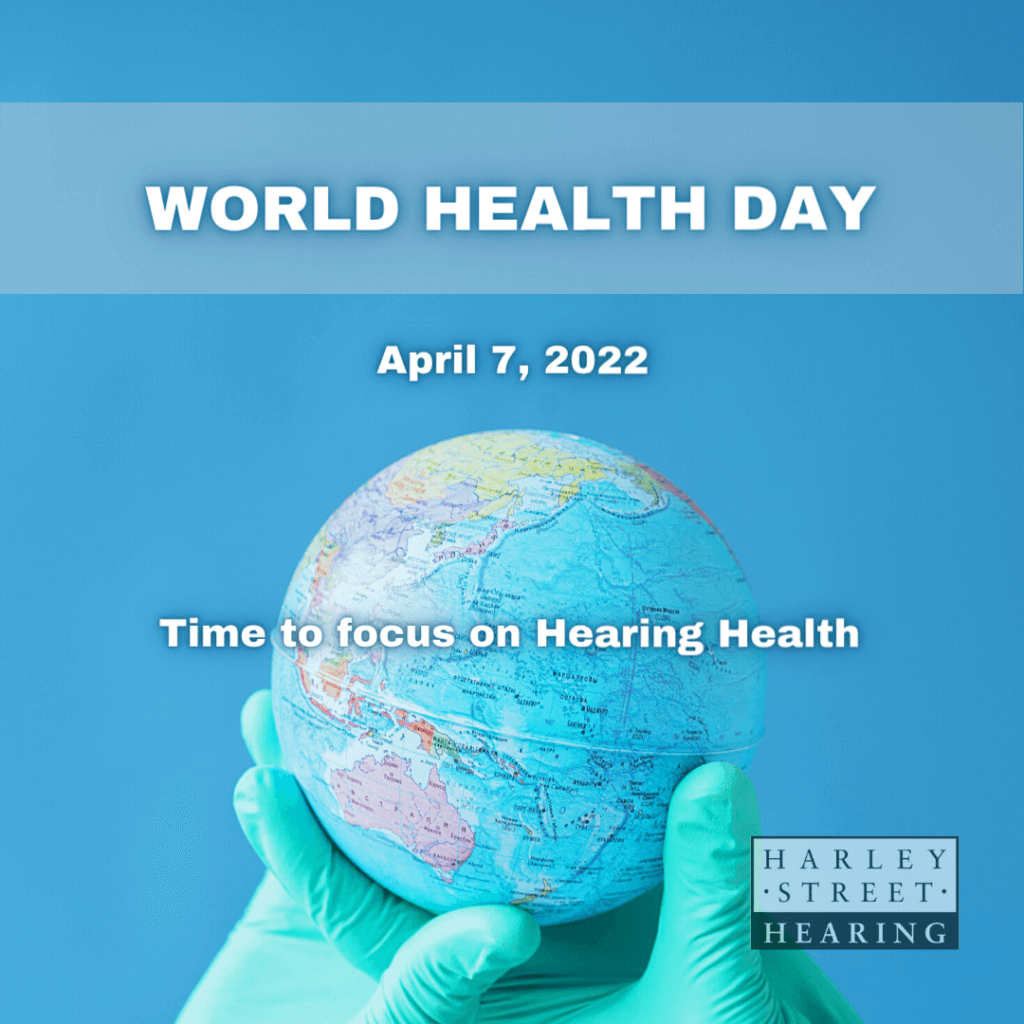World Health Day Hearing Loss and Cognitive Decline
Home > World Health Day Hearing Loss and Cognitive Decline

Hearing loss and cognitive decline
It’s time we focussed on our hearing health.
On average those with a hearing loss wait 10 years before going for a hearing test, but can you really afford to wait that long?
It’s best to lead a fully active and inclusive life, hearing everyone and everything around you ‘way’ before we consider cognitive decline. BUT if you have any hearing concerns prevention is always best.
As we age, connections between cells in the brain are damaged, or some cells are lost—this is called “brain atrophy” or “cognitive decline.”
Early diagnosis and treatment of cognitive decline and hearing loss are key to preserving our quality of life as we grow older.
On average those with a hearing loss wait 10 years before getting help. But during that time, communication with loved ones will have become more difficult, and social isolation and health risks increase.
Hearing loss isolates you from everyone around you. Someone with a hearing loss will sit silently rather than joining in conversations, as they feel helpless and exhausted from trying to listen. Social isolation is a key contributing factor for dementia.
What is social isolation?
This is loneliness that can affect health. People who are socially isolated have little day-to-day contact with others, have few fulfilling relationships and lack a sense of belonging. Social isolation can increase the risk for poor eating, smoking, alcohol use, lack of exercise, depression, dementia, poor sleep and heart disease.
Can hearing aids help with cognitive decline?
Your hearing deteriorates very slowly over a long period of time so the earlier you seek treatment the better. If you have a hearing loss and wear hearing aids, this will keep you connected with others, helps your brain stay younger and keep you involved in life.
Can hearing aids help with further cognitive decline?
Wearing hearing aids sooner and more regularly improves those affected by Alzheimers and dementia’s quality of life, makes communication easier and helps avoid social isolation, and may help slow further cognitive decline.
Dementia risk for those with a hearing loss
- Mild hearing loss – your risk is doubled
- Moderate hearing loss – your risk is tripled
- Severe hearing loss – you are five times more likely to develop dementia
Don’t assume your loved one is suffering from dementia if they’re having trouble understanding speech, or finding it exhausting to have simple conversations. Hearing loss has some of the same symptoms as cognitive impairment, so it’s vital to have regular hearing checks.
Don’t wait 10 years! If you have noticed a loved one may have a hearing loss (or maybe you have), don’t leave it any longer – call 020 7486 1053. One of our highly qualified Clinical Audiologists will be delighted to see you and your loved one for a hearing consultation.
Harley Street Hearing are London’s leading independent hearing clinic – established in Harley Street for 25 Years.
Enjoy this article? You might be interested in some of our others:












